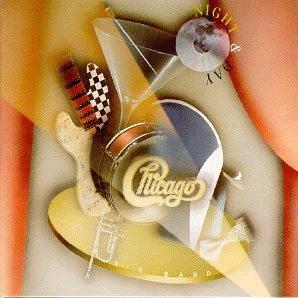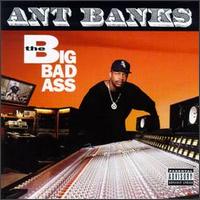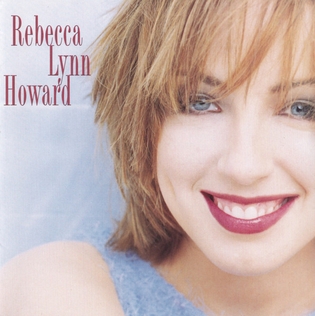
Daniel Earl Hartman was an American pop rock musician, multi-instrumentalist, producer, singer, and songwriter and original frontman for several bands, including The Soploids, Mak and the Turnarounds, Our Wringer, Last Wing, and Orion. Among songs he wrote and recorded were "Free Ride" as a member of the Edgar Winter Group, and the solo hits "Relight My Fire", "Instant Replay", "I Can Dream About You", "We Are the Young" and "Second Nature". "I Can Dream About You", his most successful US hit, reached No. 6 on the Billboard Hot 100 in 1984 in 1985. The James Brown song "Living in America", which Hartman co-wrote and produced, reached No. 4 on March 1, 1986.

Lowell Thomas George was an American singer, songwriter, multi-instrumentalist, and record producer, who was the primary guitarist, vocalist, songwriter and founder/leader for the rock band Little Feat. Before forming Little Feat, he was for a short while a member of Frank Zappa's band the Mothers of Invention.

Night & Day: Big Band is the eighteenth studio album by the American band Chicago, and twenty-second overall, released in 1995. It is a departure from Top 40 material for a more thematic project, with a focus on classic big band, jazz, and swing music.
The Clark Sisters are an American gospel vocal group originally consisting of five sisters: Jacky Clark Chisholm, Denise "Niecy" Clark-Bradford, Elbernita "Twinkie" Clark, Dorinda Clark-Cole, and Karen Clark Sheard. The Clark Sisters are the daughters of gospel musician and choral director Dr. Mattie Moss Clark. They are credited for helping to bring gospel music to the mainstream and are considered pioneers of contemporary gospel.

Gary Malcolm Wright was an American musician and composer best known for his 1976 hit songs "Dream Weaver" and "Love Is Alive". Wright's breakthrough album, The Dream Weaver (1975), came after he had spent seven years in London as, alternately, a member of the British blues rock band Spooky Tooth and a solo artist on A&M Records. While in England, he played keyboards on former Beatle George Harrison's triple album All Things Must Pass (1970), so beginning a friendship that inspired the Indian religious themes and spirituality inherent in Wright's subsequent songwriting. His work from the late 1980s onwards embraced world music and the new age genre, although none of his post-1976 releases matched the same level of popularity as The Dream Weaver.

Hot in the Shade is the fifteenth studio album by American rock band Kiss, released in 1989. It is the first Kiss studio album since 1981's Music From "The Elder" to feature lead vocals from someone other than Paul Stanley or Gene Simmons, with drummer Eric Carr singing lead on "Little Caesar". It is also the final Kiss album in its entirety to feature Carr before his death in November 1991 during production of the band’s next album Revenge. Unlike its predecessor album, 1987's Crazy Nights, Hot in the Shade does not heavily feature keyboards.

Press to Play is the sixth solo studio album by English musician Paul McCartney, released on 25 August 1986. It was McCartney's first album of entirely new music since Pipes of Peace in 1983, and his first solo album to be issued internationally by EMI following a six-year alliance with Columbia Records in the United States and Canada. Keen to re-establish himself after his poorly received 1984 musical film Give My Regards to Broad Street, McCartney enlisted producer Hugh Padgham to give the album a contemporary sound.

Oneness: Silver Dreams - Golden Reality is a 1979 album by Carlos Santana. It was his second of three albums to be released under his temporary Sanskrit name Devadip Carlos Santana, given to him by Sri Chinmoy. The album, which consists mostly of instrumental songs and ballads, features members of the band Santana, as well as Carlos Santana's first wife Deborah and father-in-law Saunders King. According to Santana, Oneness was influenced by Weather Report's album Mysterious Traveller. The track "Transformation Day" is an adaptation of part of Alan Hovhaness's symphonic work Mysterious Mountain.

It's a Fact is the first solo album by jazz musician Jeff Lorber.

The Big Badass is the second solo studio album by the American rapper and record producer Ant Banks. It was released on May 10, 1994 through Dangerous Music/Jive Records. Produced entirely by Banks himself, it features guest appearances from Ant Diddley Dog, Boots Riley, Goldy, Rappin' Ron, Spice 1, Too $hort and the rest of The Dangerous Crew. The album peaked at number 80 on the Billboard 200 and number 10 on the Top R&B/Hip-Hop Albums in the United States.

Rebecca Lynn Howard is the debut studio album by American country music singer-songwriter Rebecca Lynn Howard, released May 2, 2000 via MCA Nashville. Before this, she had recorded an entire full-length album under the Rising Tide Nashville label, which went unreleased due to the label's bankruptcy. She then went to Decca Nashville, which also closed. In early 1999, she would get a deal with MCA Nashville Records, a deal which would last until 2004 when she left the label following yet another unreleased album. The album was initially planned to be released on September 7, 1999.
The Fallout Club was a British synth-pop and new wave band formed by Irish singer Trevor Herion, the experimental drummer Paul Simon, future successful Thomas Dolby on keyboards, and bassist Matthew Seligman in 1981. Herion and Simon formed the band shortly after the demise of their previous group, the Civilians, while Dolby was in Bruce Woolley and the Camera Club Seligman, who also had played in the Soft Boys.

Amigo is a 1976 album by Arlo Guthrie. It is his seventh studio album. The album peaked at No. 133 on the Billboard 200.

Basie & Zoot is a studio album by the jazz pianist Count Basie and the saxophonist Zoot Sims, released in 1976 by Pablo Records. It was recorded on April 9, 1975, during a session organized by Norman Granz, the head of the label. Granz decided against using the Count Basie Orchestra, instead inviting Sims, who played with Basie a few years prior.

As We Speak is a studio album by David Sanborn, released in 1982 on Warner Bros. Records.
"Advance Romance" is a Frank Zappa song originally from his live album with Captain Beefheart, Bongo Fury. Other versions of the song can be found on You Can't Do That on Stage Anymore, Vol. 3, You Can't Do That On Stage Anymore, Vol. 5, and Make a Jazz Noise Here. It is a humorous parody of typical love songs and is sung by Napoleon Murphy Brock with George Duke. The song was played from 1975 to 1976 and from 1982 to 1988 making the song one of Zappa's most performed. Almost all of Zappa's lineups after its release on Bongo Fury played this song in concert.

Take Me to Your Heaven is the debut album by Stevie Woods, released in 1981 on Cotillion Records. The album was reissued in 2010 by Wounded Bird Records.

Liberated Fantasies is the seventh studio album by American keyboardist George Duke. It was recorded and mixed by Kerry McNabb at Paramount Recording Studios in Hollywood, California in 1976 and released through MPS Records, making it Duke's seventh and final album for the label. The album features contributions from Alphonso Johnson and Leon "Ndugu" Chancler with guest appearances from several musicians, including vocalist Napoleon Murphy Brock, guitarist Daryl Stuermer, percussionists Airto Moreira and Emil Richards.

From Me to You is the eighth studio album by American keyboardist and record producer George Duke. It was released in 1977 through Epic Records, making it his debut release for the label. Recording sessions for the album took place at Paramount Recording Studios in Los Angeles, California. The album features contributions from several musicians, including vocalist Dianne Reeves, guitarist Michael Sembello, bassist Stanley Clarke, drummer Leon "Ndugu" Chancler, percussionist Emil Richards, saxophonist Ernie Watts, trombonist Glenn Ferris, trumpeter Bobby Bryant, cellist Ray Kelley and others.

Nothing But the Truth is the fourth album by American singer Mac McAnally, released in 1983 on Geffen Records.

















